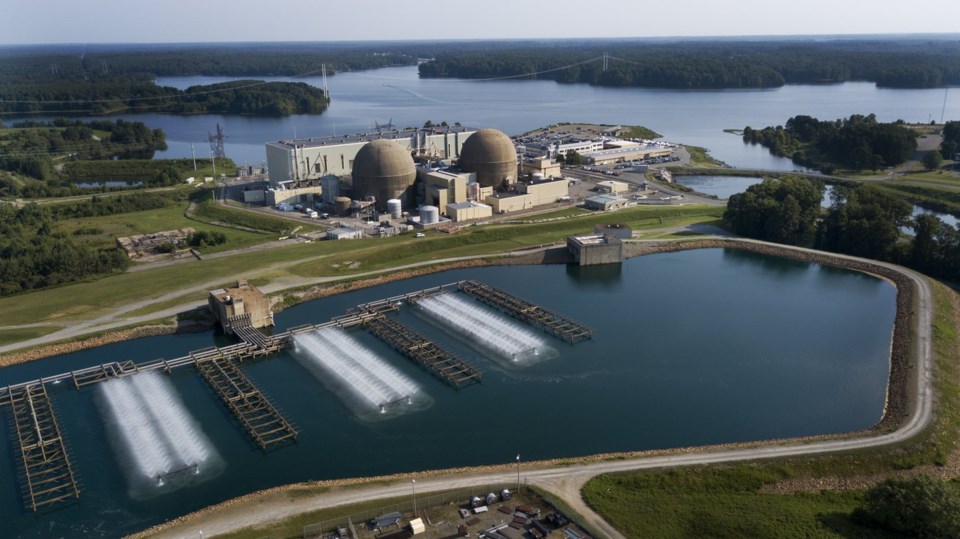Virginia's largest utility said Wednesday that it will explore the possibility of using small nuclear reactors to help meet growing electricity demands while reducing greenhouse gas emissions.
as an attractive option for states transitioning away from coal, oil and other fossil fuels. Proponents of a new generation of smaller reactors to bring online.
There are no small modular reactors, known as SMRs, in operation in the U.S., according to the Nuclear Regulatory Commission, the independent agency that oversees civilian uses of radioactive material.
A project to build the first SMR, in Idaho, following cost increases and a lack of subscribers. But is underway in Tennessee, while plan to build a commercial SMR plant in Wyoming.
Dominion Energy Virginia said Wednesday that it has asked SMR companies to evaluate the feasibility of developing a project at the site of its existing North Anna nuclear power plant outside Richmond.
Speaking near its cooling towers, Dominion CEO Robert Blue said nuclear power already makes up 90% of Virginia's carbon-free electricity. A new state law allows the company to explore the use of SMRs, with associated costs capped at $1.40 per month for a typical residential customer.
Blue said he expects the cost impact to be much lower. Dominion serves about 2.7 million customers in Virginia. It has been and is installing off the coast of Virginia Beach.
A 2020 state law set a target for 100% of Virginia’s electricity to come from carbon-free sources by 2050. Speaking at Wednesday's news conference, Gov. Glenn Youngkin said it's important to embrace new technologies for power generation.
“We can't build enough wind," Youngkin said. “We can't build enough solar in order to power the Virginia of the future. We need all of the above.”
of energy policies in all 50 states and the District of Columbia found that a strong majority — about two-thirds — say nuclear will help replace fossil fuels.
But opponents, mostly in Democratic-led states, cite the cost of new reactors compared to installing wind turbines or solar panels, as well as safety concerns. There's also the question of how to store hazardous nuclear waste.
Some environmentalists oppose small modular reactors for similar reasons. And a 2022 Stanford-led study will generate more waste than conventional reactors.
But interest in SMRs appears to be growing, even though one project was already canceled.
In January 2023, the Nuclear Regulatory Commission for one from Oregon-based NuScale Power. The company worked with a group of Utah utilities to demonstrate a six-reactor plant at the Idaho National Laboratory, generating enough electricity to power more than 300,000 homes.
But in November. Costs had increased by more than 50% in two years to $89 per megawatt hour. And it was unlikely that enough local power providers would subscribe for the project to continue.
Scott Burnell, a spokesman for the commission, said Wednesday that the NuScale Power design remains certified and is available for companies to consider. Meanwhile, the commission has other designs for other locations under review.
For example, NRC has granted a construction permit to Kairos Power, which is building a test version of an , Burnell said. It also submitted an application for a larger test version on the same site.
Burnell said another application is under review from the company , the co-founder of Microsoft. That project would use an SMR for a commercial power plant in Kemmerer, Wyoming.
“We have several other reactor designers who are talking to us about potentially applying, either for other construction permits or to have their designs generically approved,” Burnell said. “So there are a lot of other names (of companies) that are in discussions with us. But no formal applications at this point.”
Ben Finley, The Associated Press




